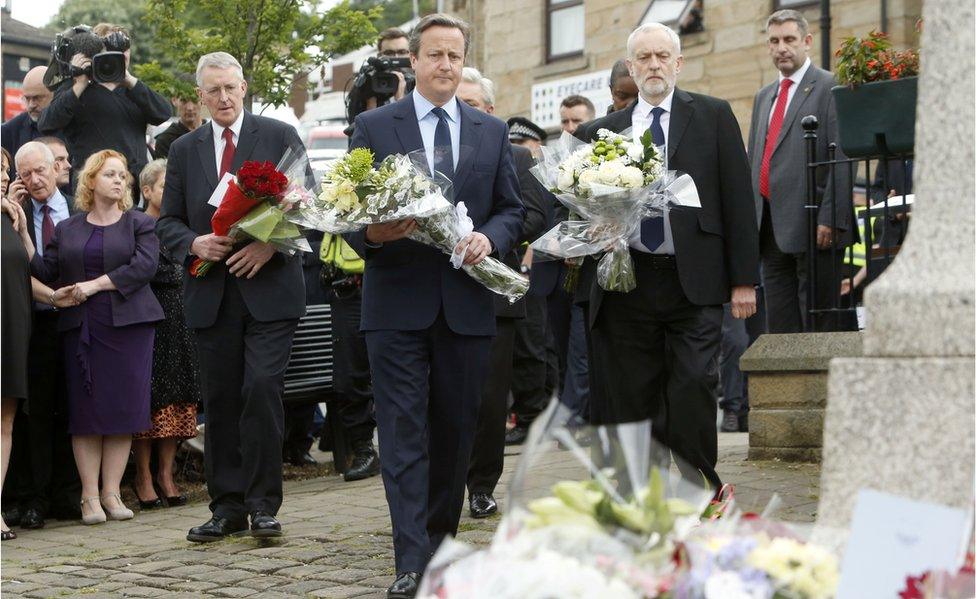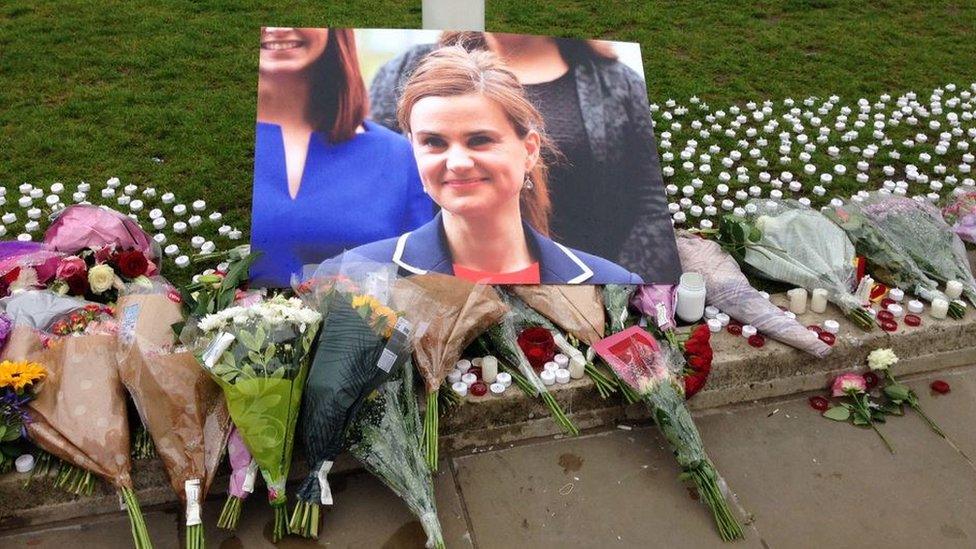Jo Cox death highlights need for respect
- Published

If we lose our respect, what do we have left?
As the country tries to make sense of the killing of Jo Cox, questions are being asked as to whether our politics and public discourse have become so intolerant and vicious that respect is in short supply.
The prime minister believes the best way to counter the threat from extremism is to focus on fundamental British values.
Schools in England must now promote respect for public institutions, democracy, the rule of law and other cultures.
And yet Thursday's chilling attack on a Member of Parliament coincides with a period in politics where respect for all these things is being undermined.
Trust in politicians is at an historic low.
The phrases "political class", "the establishment" and "the metropolitan elite" are almost routinely deployed to undermine respect for our democratic representatives, for Parliament and for public servants.

MPs from all political parties have paid tribute to Jo Cox
Anti-politics is now a recognised force, particularly online.
Social media can be the most antisocial place. Good manners and decency are drowned in a sea of bile and hostility.
The EU referendum campaign has seen the normal rules of political engagement suspended, traditional party lines washed away as supposedly honourable members trade insults and foster contempt.
Facts and expertise are dismissed as self-serving fictions, the cry of "liar!" echoing from both camps.
And with immigration the dominant theme of the referendum debate, there have been moments when the "respect for other cultures" the prime minister wishes to promote has been replaced by statements that sound more like inflammatory xenophobia.
There are, of course, very real concerns about the impact of immigration on our country.
But the rhetoric has shifted from concerns about the phenomenon to the threat from "foreigners".
I have heard it repeatedly from voters on the streets in recent weeks.
It is certainly unedifying and, perhaps, dangerously subversive.
'Poisonous'
We don't know what motivated the killer of Jo Cox, but her violent death on the streets of her constituency in broad daylight is still a reminder that there can be a fine line between robust political rhetoric and incitement.
Her husband, Brendan Cox, in his tribute to his wife, reflected on the "hatred that killed her".
"Hate doesn't have a creed, race or religion, it is poisonous," he said.
Belief in the principle of public service is central to a successful democracy.
Whether we agree with their views or not, our political representatives must have respect.
Of course they must be challenged and criticised.
MPs know they must take mockery and derision on the chin. That is part of the democratic process.
But the vast majority of MPs are genuinely honourable people who work hard and seek to do the right thing.
And if we allow our public discourse to become so unpleasant and dismissive of those we elect to represent us, then our fundamental British values are in jeopardy.
- Published16 June 2016

- Published17 June 2016

- Published16 June 2016
